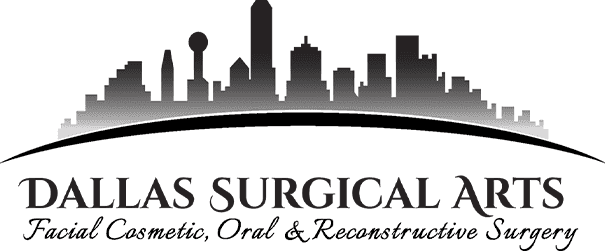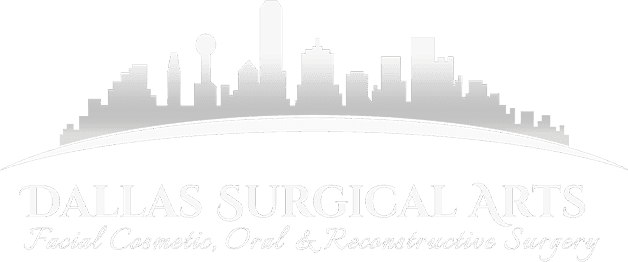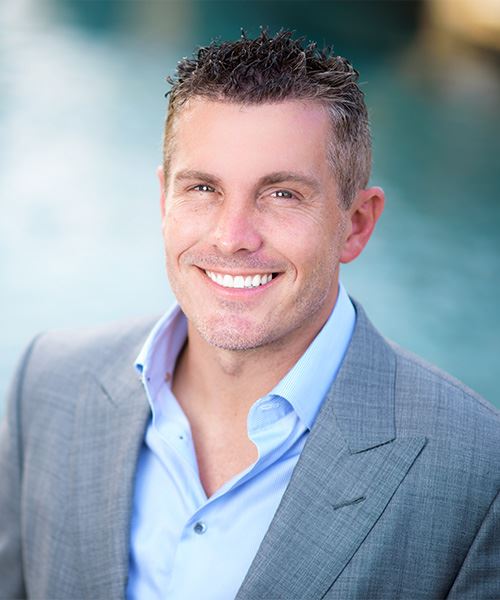How to Prepare for Surgery
We thank you for choosing our office for your procedure. We want to help you succeed in every way possible. You will have a pre-surgical appointment 2-3 weeks before your surgery with the surgical assistant that will be involved in your procedure. If you have someone that will be taking care of you, it is recommended that they come to this pre-surgical appointment to hear and understand post-op instructions. All prescriptions that are called in are to be taken after surgery. We will provide one dose of arnica to help prevent bruising, which you can start taking 8 days prior to your procedure. If you would like to take another dose post-surgery, arnica supplements can be purchased at our office or in common drugstores. We recommend obtaining all necessary items before surgery, that way after surgery you can go straight home and rest. We recommend having a well-adjusted night guard made with your dentist that will help protect the joints after the procedure. We will help you find a provider for this if you do not already have one.
What Can I Expect After Surgery?
- Bruising of the skin around the injection site happens occasionally and will resolve on its own. Bleeding and drainage are uncommon. If bleeding occurs, apply pressure over the area with gauze for approximately 30 minutes. Call the office if this maneuver does not control the bleeding.
- Rest the affected joint. This means maintaining a non-chew (liquid) diet for the first few days (3-5), and then progressing to a soft-chew diet (e.g. scrambled eggs, well cooked vegetables and fish or soft chicken). Avoid foods like bagels, beef jerky, nuts, tough meats, and ice.
- The side(s) of the TMJ surgical site, located 3cm in front of the ear up to the height of the hairline, will be numb after surgery. This is very common and will likely resolve over the next 3 months.
- You may have temporary loss of movement in the muscles that elevate your eyebrow and close your eye tightly on the side of the treated TMJ. The local anesthetic solution injected to numb the joint can temporarily block the nerve that moves these muscles. Usually, the loss of muscle movement will wear off as the local anesthetic is metabolized, up to 24 hours post-surgery. Occasionally, this side effect can persist longer than 24 hours due to pressure that is put on the nerve by accumulation of fluid in the tissue surrounding the joint. It is extremely unusual for this temporary loss of nerve function not to resolve completely.
- Swelling is normal after surgery and may take 5-7 days to improve. Keep your head elevated, at least 30 degrees, to minimize swelling.
- Applying ice to the affected joint, in 20-minute increments for the first 72 hours will help with discomfort and swelling. After, the first 72 hours, you may apply a warm compress (ie. heating pads or a microwaved wet cloth) to the jaw muscles and temples as needed for comfort. Since you will be numb, please be mindful of the temperature of the compress you are using. Avoid causing burns by testing the temperature on another area of your skin. We offer ice machines for purchase or rent to help reduce swelling, if you are interested.
- You will have decreased hearing in the ear on the treated side for up to a week following the surgery. This occurs because biologic fluid from the procedure accumulated in the middle ear and dampens the transmission of sound. This may take a few days to resolve while the fluid clears from your middle ear, but your hearing will recover to its normal function as it was before surgery.
Prescriptions After Surgery
- You will be prescribed medications based on your health history.
- You will receive pain medication to use for the first 3-5 days post-surgery.
- An antibiotic will be prescribed for you to start taking the day after surgery.
- An oral steroid will be prescribed to help reduce swelling.
- Anti-nausea medication will help limit any nausea you may experience after surgery
- A muscle relaxer will be prescribed to reduce clenching during the recovery process.
Wound Care for the Surgical Site
- Always keep a thin coat of Aquaphor on the incision sites. You will need to apply this 3-5 times per day for the first week after surgery.
- The bandage can be removed 24-48 hours post procedure.
Dietary Restrictions After Surgery
- A strict non-chew (liquid) diet is required for the first 5 days following surgery. After 5 days, you may progress to a soft-chew diet, which is recommended to maintain for the first 3 months after surgery. After 3 months, you may slowly expand your diet. Avoid hard, crunchy, or chewy foods at first. Avoid foods that hurt your jaw, such as raw vegetables, and whole apples. You should avoid cracking nuts, chewing on ice, gum or food that causes discomfort or prolonged repetitive motion.
- Hydration is key to recovery. We recommend consuming 8-10 glasses of liquid per day during the recovery process.
Things to Expect After Surgery
- It is normal for the upper and lower teeth on the side of the injected joint not to touch for a few days. This occurs because of swelling in the joint, which pushes the lower jaw downward and opens the bite. Do not try to force your teeth to touch. This will resolve naturally as swelling dissipates within 5-7 days.
- You may notice clicking in your jaw joint that was not present before. This is normal and is not a cause for concern.
- It is normal to have increased discomfort/soreness in the joint area near the surgical site and in the temple region.
- It is normal to have limited movement. Do not fully stretch your mouth open for the first two weeks. If you have been advised to do a range of motion exercises by Dr. Sanovich, start these as instructed a week after the surgery. The exercises should be done to the point of mild discomfort that resolves after the exercise. If the pain increases during the exercise, or afterward, reduce or discontinue the exercise until the pain resolves.
Activity Level After Surgery
- Avoid any strenuous physical activity for 1 week.
- You may return to school or light duty work (non-physical labor) within a week of the surgery, or as tolerated.
- Although you just had surgery, we recommend you do not stay in bed while awake. The more movement and blood flow, the easier the recovery can be.
- Try to transfer to a chair and walk around the house. You want to be as active as possible, but avoid doing anything too strenuous.
- The swelling will worsen over the next 3-4 days after surgery, which is expected, but it will begin to subside shortly thereafter.
Post-Surgery Exercises
- See separate instructions, which are included with surgery packet
- TMJ remobilization exercises are provided and should be utilized until the full range of motion of the jaw is achieved.
- Occasionally, we will need to refer patients out to a physical therapy facility to help with guided remobilization of the joint to achieve full opening capacity. We will assess the need for this based on your progress at each of your follow-up appointments.
What Happens at the Follow-Up Visits?
- You will have a follow up 1 week after the procedure to assess the incisions and overall healing progress.
- We have a Candela Vbeam Prima Perfecta Laser Machine, a pulsed-dye laser (PDL), that will help remove dark red or purple bruising more quickly.
- We take photos at each follow-up appointment to monitor your healing progress.
- You will have a follow-up 2 weeks after the procedure to assess your progress and address any concerns you may have about the healing process.
- You may call at any time during your recovery if you have any questions or concerns between follow-up visits.
When Should I Call My Doctor?
- If you have difficulty breathing
- If you have increased swelling 2-3 days after surgery
- If you have difficulty closing your eyes after surgery
- If you are unable to urinate
- If you have severe pain that is not improved with medications
- If you experience a rash, nausea, vomiting, severe headache, severe constipation, or other unexpected reactions
- If you have an oral temperature over 100.5 degrees.
- If you have a question or concern that must be addressed prior to the follow-up visit.
Who Should I Call if I Have Questions?
Please call our office at (972) 914-3660. You may also email photos or questions to info@dsa.live and someone will get in touch with you within 24-48 hours.


 Dr. Randy R. Sanovich, DDS Board Certified Facial Cosmetic Surgeon, Board Certified Oral & Maxillofacial SurgeonAs a dual board-certified surgeon in oral, maxillofacial, and facial cosmetic surgery, Dr. Randy Sanovich is committed to providing optimum results for his patients. Dr. Sanovich’s extensive training ...Learn More
Dr. Randy R. Sanovich, DDS Board Certified Facial Cosmetic Surgeon, Board Certified Oral & Maxillofacial SurgeonAs a dual board-certified surgeon in oral, maxillofacial, and facial cosmetic surgery, Dr. Randy Sanovich is committed to providing optimum results for his patients. Dr. Sanovich’s extensive training ...Learn More Dr. Daniel Sanovich Board Certified Oral & Maxillofacial Surgeon
Dr. Daniel Sanovich Board Certified Oral & Maxillofacial Surgeon Dr. Max McCullum Board Eligible Oral & Maxillofacial Surgeon
Dr. Max McCullum Board Eligible Oral & Maxillofacial Surgeon Jennifer Laudien Licensed Esthetician, Senior Certified Laser Hair Technician
Jennifer Laudien Licensed Esthetician, Senior Certified Laser Hair Technician Hannah Killeen Licensed Esthetician, Certified Laser Technician
Hannah Killeen Licensed Esthetician, Certified Laser Technician Martin Serralde Registered Nurse
Martin Serralde Registered Nurse







